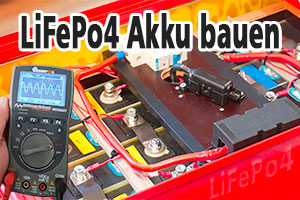Hi inka,

Zitat von
inka
...
das "-" zeichen wird jetzt ausgegeben, die zweite hälfte des satzes
"\n\r Phototransistorwerte : links/rechts",39"
...
da hat sich der Fehlerteufel beim ersten do eingeschlichen!
Dann habe ich noch \n\r geändert in \r\n, und dieses kompilierbare Programm funktioniert:
Code:
#include "asuro.h" // Prüfung der Phototransitoren
/* ------------ Line Sensor Test ---------------- */
/* Left Sensor -> Left Break LED ON when Light on
Left Phototransistor bright enough */
/* Right Sensor -> Right Break LED ON when Light on
Right Phototransistor bright enough */
void _UartPutc_ (unsigned char zeichen)
{
UCSRB = 0x08; // enable transmitter
UCSRA |= 0x40; // clear transmitter flag
while (!(UCSRA & 0x20)) // wait for empty transmit buffer
;
UDR = zeichen;
while (!(UCSRA & 0x40)) // Wait for transmit complete flag (TXC)
;
}
int main(void)
{
unsigned char tmp[2] = {OFF,OFF};
unsigned int data[2];
unsigned char z;
z = 0x2D;
Init();
SerWrite("\r\n --- Line Sensor Test ---",28);
StatusLED(OFF);
FrontLED(ON);
do
{
LineData(data);
if (data[0] > 400)
tmp[0] = ON;
else
tmp[0] = OFF;
if (data[1] > 400)
tmp[1] = ON;
else
tmp[1] = OFF;
BackLED(tmp[0],tmp[1]);
SerWrite("\r\n Phototransistorwerte--",35);
PrintInt(data[0]);
_UartPutc_(0x2D);
//PrintInt(z);
//SerWrite("\n\r !",1);
//SerPrint(" ");
PrintInt(data[1]);
// SerWrite("\f",1); //Seitenvorschub EDIT 2: bringt Fehler bei der Ausgabe
}
while(1);
return 0;
}
/* END Line Sensor Test ------------------------- */
Und hier Output von myIrAsuro:
Code:
--- Line Sensor Test ---
Phototransistorwerte-- 982-976
Phototransistorwerte-- 424-783
Phototransistorwerte-- 264-350
Phototransistorwerte-- 236-217
Phototransistorwerte-- 236-203
Phototransistorwerte-- 234-198
Phototransistorwerte-- 235-199
Phototransistorwerte-- 235-199
Phototransistorwerte-- 234-197
Phototransistorwerte-- 229-190
Phototransistorwerte-- 233-194
Phototransistorwerte-- 233-197
Phototransistorwerte-- 233-202
Phototransistorwerte-- 232-225
Phototransistorwerte-- 228-205
Phototransistorwerte-- 229-182
Phototransistorwerte-- 231-200
Phototransistorwerte-- 243-256
Phototransistorwerte-- 297-618
Phototransistorwerte-- 981-975








 Zitieren
Zitieren


Lesezeichen